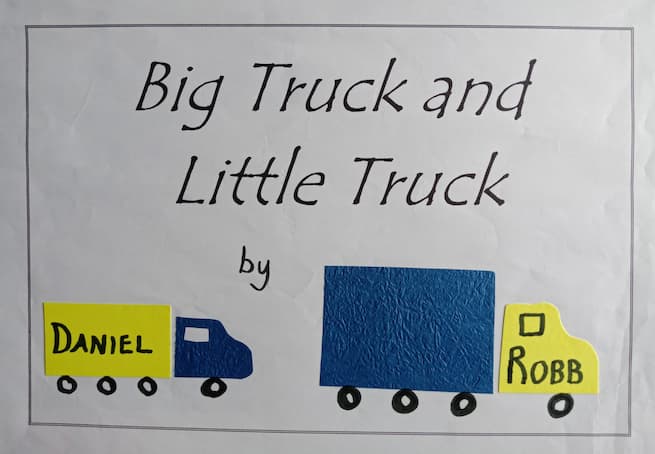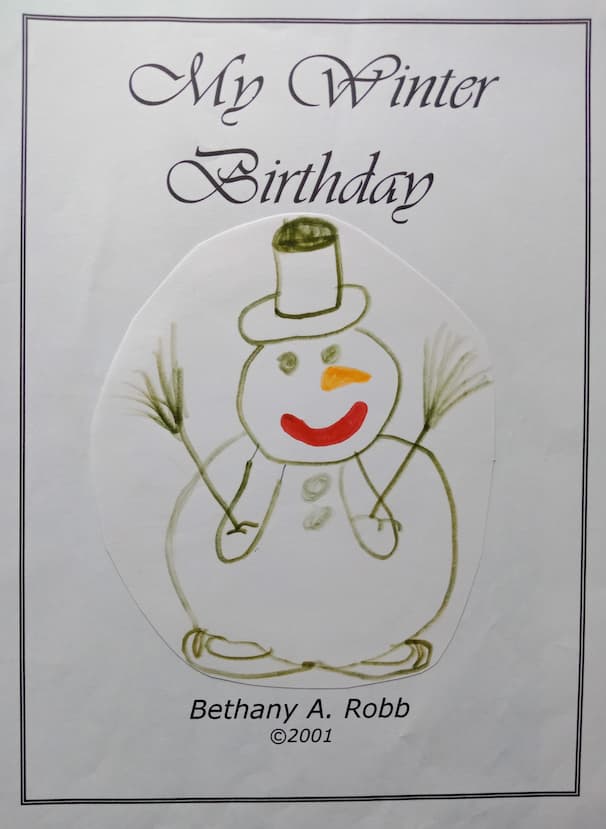Enjoy Your Children in the Land of Writing

This post is part of the series 10 Ways to Inspire Your Budding Writer
“Enjoy your children.” My homeschool mentor’s mantra may seem simple. Even obvious. But sometimes in the midst of dirty dishes, piles of laundry, math lessons, messes and bickering, this seemingly straightforward advice felt like a revelation. And on bad days, even an impossibility. So in the midst of the chaos of six children and our busy lives, I needed to be reminded.
“Slow down. Breathe deeply,” I would tell myself, “Look past the mountain of laundry. Focus on their faces.” Each time I did this I could again see each as an individual. One passionate about pets – real and imagined. Another fanatical about food. One boy wild about WWII weapons. Another preoccupied with paper planes. My two-year old enjoying the slimy feel of slugs on her upheld palm and exclaiming, “Plugs!” Gorgeous giggles. Eyes wide with wonder.
Delighting in each one’s unique interests, talents and gifts cultivated joy in our home. Enjoyment is important to all aspects of life with our precious children, and over time I learned to let the teaching of writing flow out of this enjoyment. Now one of my mantras for parenting and for teaching writing is “study your child”. Notice. Respect each as a person and a learner. One of the joys of home schooling is that we can customize the learning for each child in a way schools can only dream of. We can stop, step back and consider each one’s strengths and weaknesses, then seek to set each up for success. We can ensure that relationship trumps academics.
“But how?” you may ask. Perhaps instead of battling over a workbook as you seek to teach your child to write, try something new.
Catapult from their interests – “Did You Know” book or Sequel Story
What currently mesmerizes your child? When we lived in Beijing, my five-year-old daughter made a book about our life there. One page said, “Did you know that our whole family climbed the Great Wall?” She enjoyed drawing pictures to go with each fact. Consider making a “Did You Know” book or poster about your child’s current interest. Let your budding writer choose some fascinating facts to go in the book or on the poster. Add some photos or encourage your artist to create some illustrations. Have fun! Celebrate the finished product.

When one son was four, he was keen to make a book like his siblings were doing for our homeschool book club. Loving construction vehicles, his favourite story at the time was Big Truck and Little Truck by Jan Carr. Together we came up with a sequel story about Big Truck and Little Truck. Asking questions drew the ideas out of him, and I scribbled down his story. Later I typed it up, printed it, and together with help from older siblings we illustrated the pages. To finish we made a cover page with his name as the author and slipped the finished pages into a clear display book. We even included a copyright page. He proudly showed off his book along with the other children on the co-op celebration night.
Tap into their experiences

My seven-year-old daughter was stuck; she couldn’t think of an idea for her book. Suddenly inspiration came. “I’ll write about my winter birthday!” One bonus of moving hemispheres is that you sometimes get to experience your birthday in a different season. Celebrating her birthday in Canada instead of New Zealand made a big impression. Snowmen, snow angels, sledding, ice skating and snowball fights all featured.
We partnered together. Since we’d been working at including sounds in our writing, ‘bonk’, ‘bang’, ‘pop’, ‘vrrrm’ and ‘mmmm’ got added. Some days she wrote quite independently. Sometimes I scribed for her or we took turns. The finished product contained some of her drawings plus photos from her birthday. The process took a couple of months as we did a bit each day, but the effort was worth it.
At age 13 my eldest bred her rabbit and planned to sell the babies. Wanting them to be well-looked after, she decided to create an e-manual about rabbit care. I exempted her from other writing projects and she got to work. Applying some of the checklists from our writing curriculum, she worked to use a variety of sentence types. Highly motivated, she researched, wrote, took or found photos to add, and formatted the document. She delighted in sending a copy to each person who bought a bunny. And I was just as proud as she was.
Enjoyment for all
In what ways does your child delight you? Do you love to see them come alive with wonder? Can you tap into that enthusiasm when planning writing projects? How could that passion spill over into a fun writing project? Push aside that pile of laundry, set the workbook down, and have some fun writing with your incredible child
Tips to Remember When Writing With Your Child
- Writing is a life skill not a subject. It’s okay to ditch the workbook for a while.
- It’s not cheating to write with and for your child. Share the pen and offer as much support as needed.
- Weave the skills of writing into the work. For example, adding in better word choices can be part of the fun, not a chore.
- Age-appropriate checklists can offer helpful reminders.
- Choosing an audience for the writing is motivating. It helps to provide a reason for the hard work of writing.






